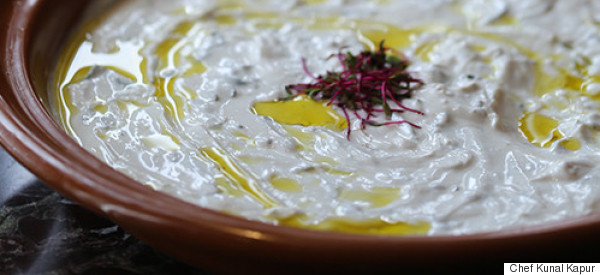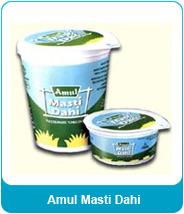prasad1
Active member
For the longest time I confused curd or dahi with yogurt. I was always told that curd and yogurt were just different names for the same thing. Some said that curd is what we call it in India and yogurt is an American term. Then again others claim that yogurt is thicker than curd and that is the difference. And to complicate matters, there's probiotic yogurt too.
So curd, yogurt or probiotic, what's the difference anyway?
After a lot of research and consulting with a close friend, Seema Singh, who is the Chief Nutritionist at a leading hospital in Delhi, things became very clear.
Before I begin, I have to clarify that curd generically is a word that refers to the milk solids that are left after curdling milk (by way of adding an acidic curdling agent). This process gives us curd that is further processed to make cheese. So, paneer, for example, is technically curds obtained from splitting the milk. The other curd, to which I refer in this blog, is obtained by way of fermentation -- by adding a bacterial culture to boiled and cooled milk. For the sake of clarity in this article I am referring to curd as dahi.
Curd/dahi
Dahi is made by boiling and cooling the milk to 30-40°C and adding a spoonful of curd. Now curd has lactic acid bacteria or lactobacillus. This bacteria multiplies itself in the ambient temperature of 30-40°C and in few hours ferments the milk to form curd. Curd is a rich source of calcium and protein and is suitable for lactose intolerant people (though it depends on the degree of tolerance).
In India, curd is regarded as very good for stomach as it aids digestion and gives a cooling relief from spicy foods. But because curd and its bacterial strength vary from one home to the other, it is not a standardised product. So the good bacteria present in curd may or may not reach the intestines alive to give the expected health benefits.
Yogurt
Yogurt is prepared using similar techniques to curd but the fermentation of the milk is done by adding two specific strains of bacteria called lactobacillus bulgaris and streptococcus thermophilus. Other strains of lactic acid bacteria may also be added. The addition of these bacteria makes the product standardised and homogenous. This ensures both quality and right quantity of bacteria in the yogurt. Also, more of the good bacteria reach the intestines alive.
Probiotic yogurt
Probiotics are live microorganisms that provide health benefits to the consumer when given in specific quantities. For any product to be called a probiotic (such as a yogurt or drink) the product must contain a specific strain of live bacteria that is resistant to gastric acid, bile and pancreatic juices, and which reaches the intestines alive to give the correct health benefit.

http://www.huffingtonpost.in/kunal-kapur/curd-vs-yogurt-whats-the-_b_7694528.html
So curd, yogurt or probiotic, what's the difference anyway?
After a lot of research and consulting with a close friend, Seema Singh, who is the Chief Nutritionist at a leading hospital in Delhi, things became very clear.
Before I begin, I have to clarify that curd generically is a word that refers to the milk solids that are left after curdling milk (by way of adding an acidic curdling agent). This process gives us curd that is further processed to make cheese. So, paneer, for example, is technically curds obtained from splitting the milk. The other curd, to which I refer in this blog, is obtained by way of fermentation -- by adding a bacterial culture to boiled and cooled milk. For the sake of clarity in this article I am referring to curd as dahi.
Curd/dahi
Dahi is made by boiling and cooling the milk to 30-40°C and adding a spoonful of curd. Now curd has lactic acid bacteria or lactobacillus. This bacteria multiplies itself in the ambient temperature of 30-40°C and in few hours ferments the milk to form curd. Curd is a rich source of calcium and protein and is suitable for lactose intolerant people (though it depends on the degree of tolerance).
In India, curd is regarded as very good for stomach as it aids digestion and gives a cooling relief from spicy foods. But because curd and its bacterial strength vary from one home to the other, it is not a standardised product. So the good bacteria present in curd may or may not reach the intestines alive to give the expected health benefits.
Yogurt
Yogurt is prepared using similar techniques to curd but the fermentation of the milk is done by adding two specific strains of bacteria called lactobacillus bulgaris and streptococcus thermophilus. Other strains of lactic acid bacteria may also be added. The addition of these bacteria makes the product standardised and homogenous. This ensures both quality and right quantity of bacteria in the yogurt. Also, more of the good bacteria reach the intestines alive.
Probiotic yogurt
Probiotics are live microorganisms that provide health benefits to the consumer when given in specific quantities. For any product to be called a probiotic (such as a yogurt or drink) the product must contain a specific strain of live bacteria that is resistant to gastric acid, bile and pancreatic juices, and which reaches the intestines alive to give the correct health benefit.

http://www.huffingtonpost.in/kunal-kapur/curd-vs-yogurt-whats-the-_b_7694528.html

